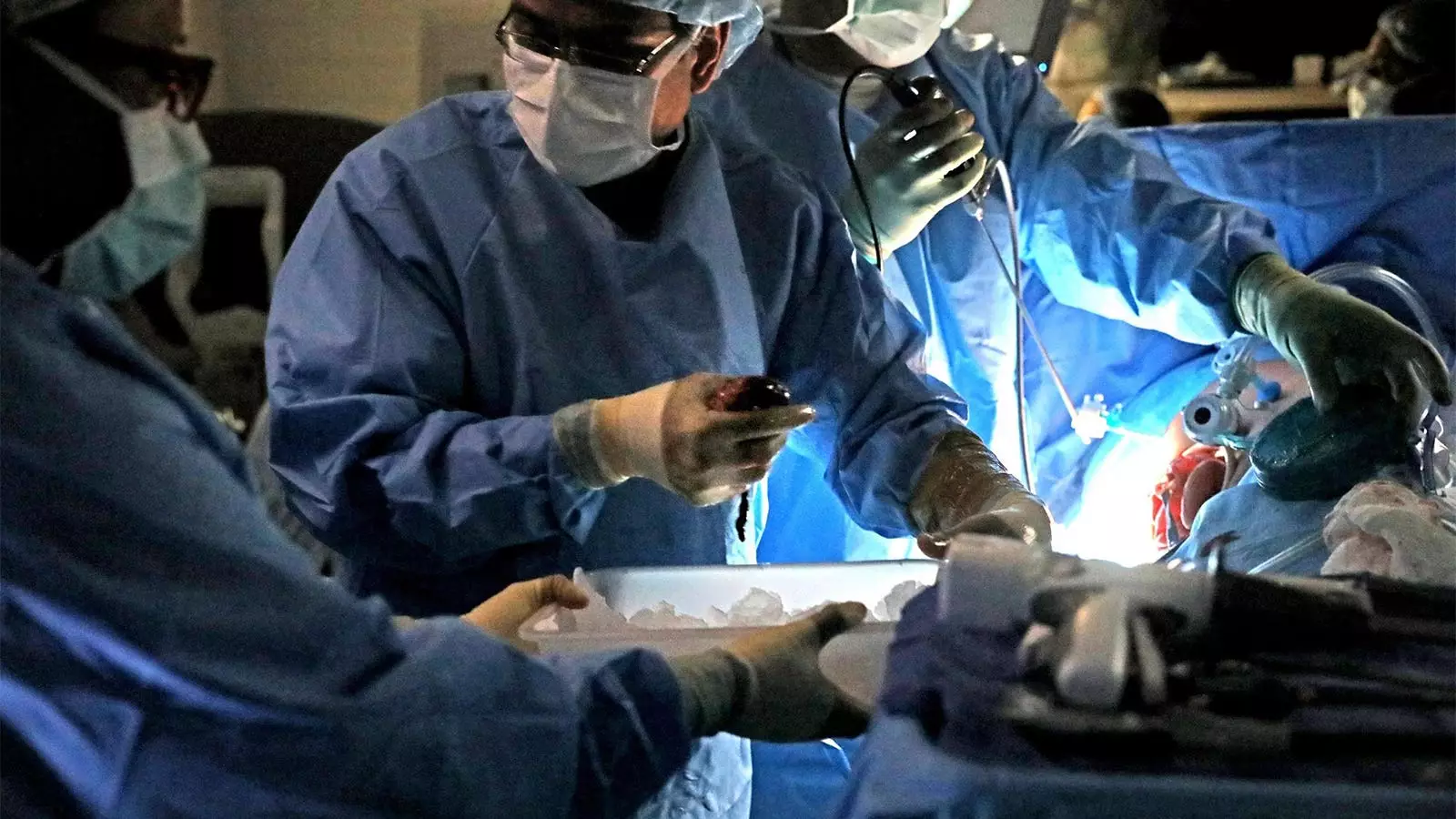For individuals struggling with end-stage organ disease, waiting for a transplant can be a harrowing experience. Simon’s story illustrates a poignant reality facing many families: the length of the waiting list for organ transplants is significantly impacted by a shortage of donors. Across the United States, over 100,000 individuals are currently awaiting an organ transplant, with an alarming statistic revealing that 17 people die every day due to the insufficiency of available organs.
The plight of Simon’s friend, Andre, who was diagnosed with kidney disease and required dialysis, underscores the emotional turmoil families face when dealing with such a disconnect between the desperate need for organs and the actual availability. Living donations—essentially when a healthy person donates an organ or part of an organ—represent a viable solution. However, only about 6,900 individuals became living donors in 2023, a stark contrast to the demand.
While living organ donation is a noble and vital act that can transform lives, barriers exist that deter potential donors from stepping forward. One significant obstacle is the myriad of financial challenges associated with the donation process. Many potential donors, like Simon, face pushback from employers regarding unpaid leave, which could exacerbate financial strain during an already stressful time. Additionally, many donors must cover their medical expenses out-of-pocket or forgo payment altogether, adding to the daunting decision of whether to proceed with donation.
Furthermore, studies suggest that living donors frequently encounter difficulties with both health and life insurance. They may face elevated premiums or even coverage denial post-donation, creating an unnecessary secondary crisis. This financial burden acts as a deterrent for those who might otherwise be inclined to help their loved ones, thus highlighting the need for policy reform to alleviate these concerns.
To combat these pressing issues, various legislative initiatives have been introduced that aim to enhance protections and support for living organ donors. The Affordable Care Act (ACA) and the Family and Medical Leave Act (FMLA) provide groundwork by preventing discrimination based on pre-existing conditions and allowing employees a maximum of 12 weeks of unpaid leave. However, the effects of these laws are inconsistent, as not all employers are held to these requirements.
One promising piece of legislation is the bipartisan Living Donor Protection Act. This act would reassure potential donors that they will not face adverse actions from insurance companies because of their living donor status. Such protections might incentivize more individuals to consider organ donation, knowing that their livelihoods would remain secure throughout the process.
In addition, the Honor Our Living Donors (HOLD) Act proposes a more nuanced financial aid structure that would base assistance solely on the donor’s income rather than the recipient’s, thus providing more equitable support. Lastly, the Living Organ Donor Tax Credit Act proposes a refundable tax credit for living donors to offset related expenses, making the act of donation less financially burdensome.
Despite the introduction of these important legislative measures, progress has been slow, largely due to the political polarization that engulfs Congress. It’s vital incumbent upon advocates for organ donation to prioritize these commonsense reforms. These changes can collectively foster a supportive environment for potential donors, encouraging more individuals to consider the transformative act of donation.
Just as Simon took a stand for his friend despite potential repercussions—understanding the risks and rewards of living organ donation—we too must recognize the necessity for systemic support for prospective donors in our society. A cultural shift in how we view organ donation and a commitment to addressing the barriers that exist can create a more robust organ donation framework, ultimately saving more lives.
Every donation can have a tremendous impact on the trajectory of a person’s life, something that should motivate us all to work toward improving support systems for living donors. Each step taken towards enhancing these systems is a step towards hope for thousands waiting for a second chance at life. With concerted effort and genuine political will, we can ensure that stories like Simon’s and Andre’s become less about the challenges of donating and more about the joy of giving life.


Leave a Reply